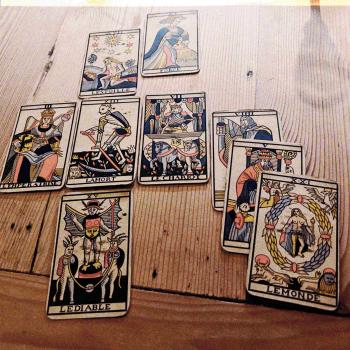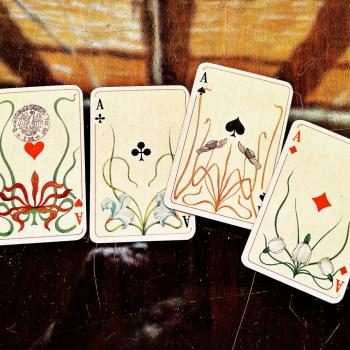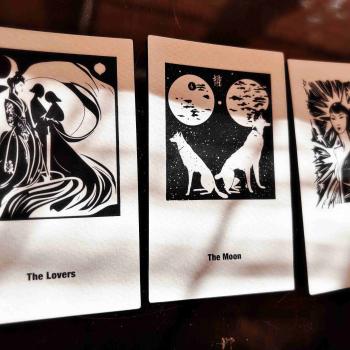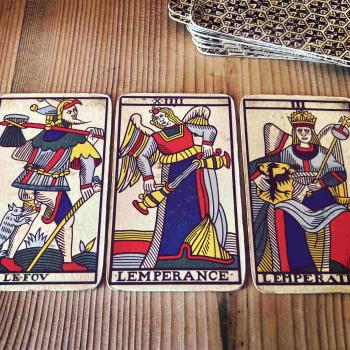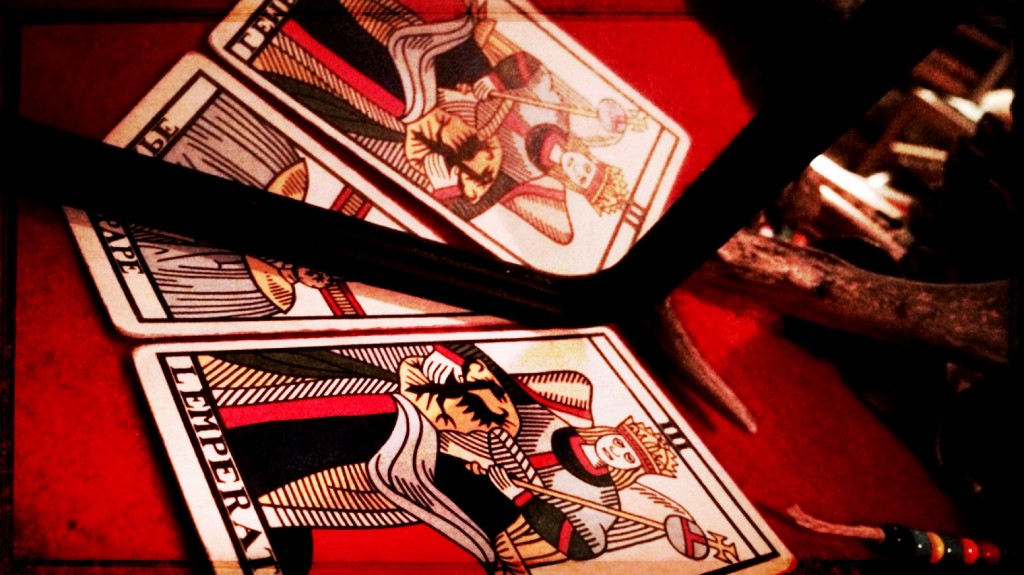
When you get up in the morning, what do you do when you catch yourself in the mirror? Do you say anything? Do you avert your gaze, or do you politely put on lots of mascara? – for you see, masquerade has a very specific function.
But if you say anything, what do you say?
‘Today is a good day’ – your right foot confirms your confidence too, as you hear the sound of your heels going, ‘wheez, it’s the Wizard of Oz time.’
Or, ‘Today will be a good day’ – your voice trembles a bit, but as you instruct it to be more firm, and show belief in what it utters, the voice obeys, and a ‘feel good’ narrative takes off.
Or, ‘Today I feel some shit is gonna hit the fan.’ You say this while donning your red, martial arts costume, getting ready to retaliate.
Or, ‘Today is a good day, because what I see in the mirror is just a reflection.’ This you say while staring at yourself, seeing nothing, looking into the void smiling.
Fictions of the self
What you see in the mirror when you penetrate your own reflection is a narrative of the self, not the self. A fiction. ‘Oh, this fiction needs a bit more lipstick today, for I need to play Venus. I need to score that job interview, so it’s important I make an impression.’
What happens here amounts to what you can easily call a process of living by proxy, or outsourcing your experience. This in turn creates a counter-narrative that dictates that your source of success, happiness, achievement, and accomplishment is necessarily dependent on others.
It usually starts with this: ‘It’s important that…’ – insert here your favorite role to play, such as, it’s important that the boss/husband/lover/children/in-laws/friends like me; It’s important that I finish my degree, and preferably at an Ivy league something something, so that I can make sure I’m attractive to this and that other thing or something something.’
Mirror, mirror on the wall . . . keep talking
The funny thing is that the mirror doesn’t care about your self-empowering fragments of fiction. It doesn’t care about your eloquent words and firm voice. The mirror reflects, not judges. As such, it helps you none. So whom are you sending to your words of power, when you either whisper or shout them into the mirror? When the mirror just tells you back what you want to hear? Is the mirror a good ally?
‘I talk to the mirror to stay in power,’ I often hear people say, and I get the electric spark in this statement. But such enunciations are neither lasting nor real. This reminds me of the widely circulated meme on the internet, in which a puttytat looks at herself in the mirror, and while admiring her shadow, she declares that she’s a tiger. She’s a tiger alright, until the minute she’s on the street again, confronting her reality such as it is, not such as it is invented by a reflection at home, or by a story of the domestic cat gone wild.
Staying in your power is not about staying in symbolic power, which amounts to being a protagonist in a narrative, whether self-invented or other-constructed. Staying in your power means being able to distinguish between reality and fiction. Simply being is not the same as being what you tell yourself you are.

The implication of this is great, for this reason: you realize that whatever feeling arises in you, of raw intensity, loneliness, or loveliness, is part of your current vocabulary and cultural competence, not reality.
Identifying with the content of your felt experience is the same as validating your roles performed in the mirror. However, as these roles are not reality, but precisely the result of reflection, what you end up validating is the illusion of what you are and who you are, an invented content, a story in your own head.
While happiness and sadness can make you ‘feel’ your heart – you can feel hurt or joyous – they are not ‘the thing itself,’ they are not your vastness, they are not you as vastness. They are not your shared context.
How big thy art
But what is the ‘thing itself’, this thing that poets and Zen masters like to talk about? When I say, ‘mirror, mirror on the wall,’ what do I see? What do I say, really? What do these words refer to? What do they mean? Where can I feel them in the body?
Let’s see some cards:
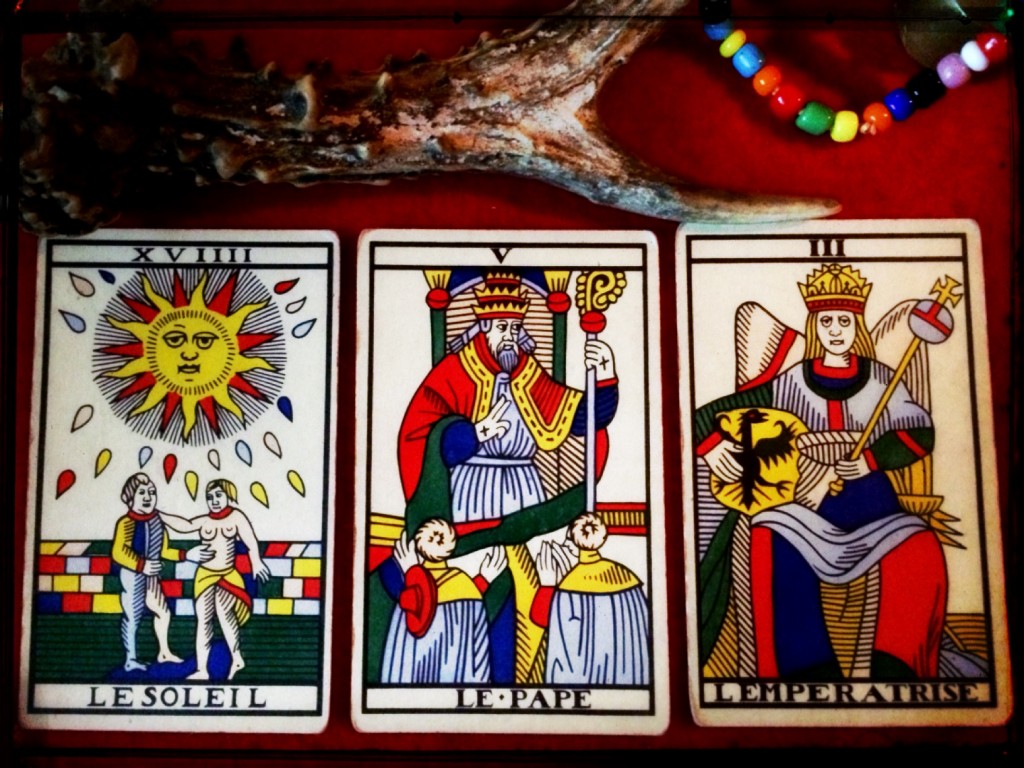
The Sun, The Pope, The Empress
Clever cards. The first card, the Sun is the card of light, a card that illuminates everything. So ‘the thing itself’ is not the Moon, a reflective body, but rather, light. Light that warms and makes us share ourselves. We can teach others too about this space, this light that just is, the light that makes no discriminations. ‘Listen’ the Pope says, ‘there’s light.’
There is such a thing as reality. As you sit and breathe on your throne, you can meditate on your crowning achievements, like the Empress, but these achievements are not You. They are emblematic stamps on your shield. Stories of consecration. ‘The thing itself’ is you-plus-the-spiritual-man-in-the-garden. ‘The thing itself’ is also the others listening and watching, the disciples. The thing itself is you, when you dissolve into connection.
I like it very much how the Sun card subtly suggests a double mirroring of both, the man and the woman, and of the two disciples, as if saying: we were all naked once. We are still naked, in our present, in our perception of what is not fiction, of what is not a costume we don for the sake of convenience, but we don’t always realize this.
Mirror, mirror on the wall. I see you see me. . . as shared space.
♠
More words of power? Stay in the loop.

Patheos Pagan on Facebook.

the Agora on Facebook
The Cartomancer is published bi-monthly on the second and fourth Wednesday here on the Agora. Subscribe via RSS or e-mail!
Please use the links to the right to keep on top of activities here on the Agora as well as across the entire Patheos Pagan channel.






